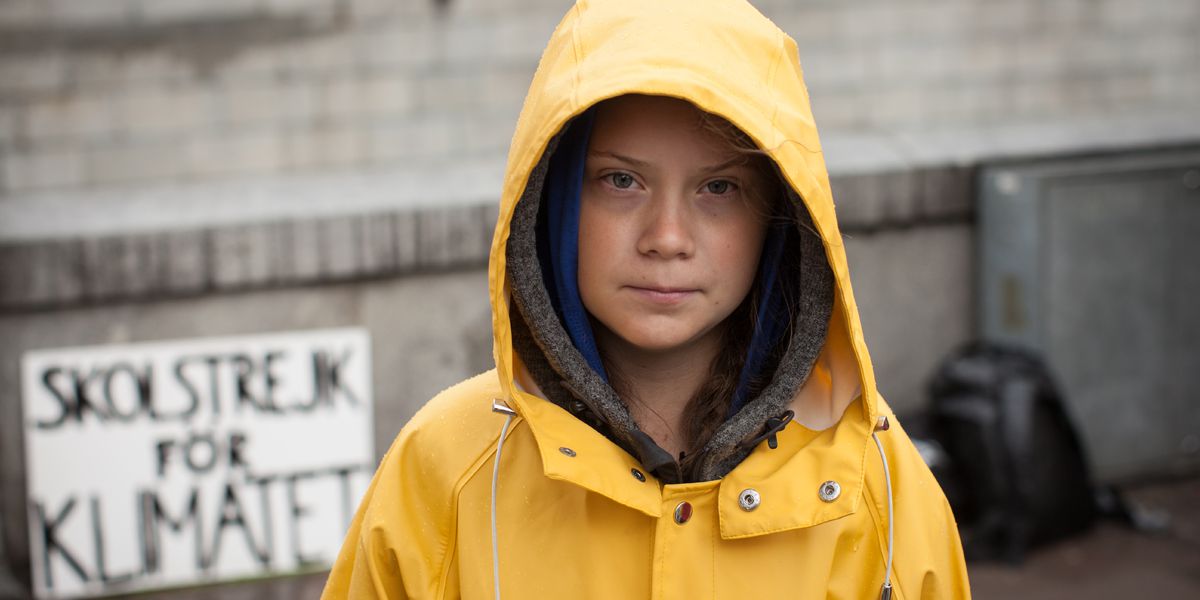I Am Greta
(Sweden, 97 min.)
Dir. Nathan Grossman
Programme: Special Events (North American Premiere)
She is Greta, hear her roar, in numbers too big to ignore—but we know too much to go back and pretend. I Am Greta offers an intimate if redundant portrait of teenage Swedish activist Greta Thunberg. Yes, she is wise, but this film’s a PR exercise.
While director Nathan Grossman enjoys extraordinary access to Thunberg’s life, the portrait feels too calculated for comfort. Many criticisms of Thunberg and the global phenomenon inspired by her activism go unchecked. While Thunberg’s actions are themselves laudable, one needs to ask what else a film can bring to a subject’s story beyond the offstage comments made before and after speeches circulated widely in the media. All the greatest hits are here and only someone who has spent the past two years off the grid will learn much from I Am Greta. Thunberg’s skeptics will find confirmation bias through the superficial portrait that is enamored with the young star. I Am Greta is a frustratingly lopsided portrait—presumably, every bit the film it wants to be.
One’s eyebrows might raise from the outset. Grossman and his handsome camera are on the ground and ready for Thunberg as she stages her first school strike. These #FridaysForFuture protests began with Thunberg skipping school to raise awareness for climate change. Grossman observes Thunberg set up her poster and stack of pamphlets, eager to engage with passersby.
However, while Thunberg’s activism seems earnest, her father frequently lurks outside the frame. I Am Greta can’t shake its calculated character. When a teenager has cameras at the ready before staging her first strike, one must wonder who is pulling the strings. Even this environmentally friendly viewer lost confidence in Thunberg as a direct result of watching the film. Her father, Svante, scurries between the camera and the members of the press, acting as her manager and publicist. His hand with his daughter recalls the relationship with Malala Yousafzai and her father in He Named Me Malala, Davis Guggenheim’s portrait of the young activist. Like Yousafzai, Thunberg often draws criticism that she is her father’s puppet. Grossman’s film will do little to change any minds with such an opinion.
Unlike He Named Me Malala, however, I Am Greta doesn’t give the activist her origin story. One knows of Yousafzai’s fight for women’s rights and a girl’s right to an education after she survived gunfire from the Taliban simply for going to school. I Am Greta offers little information about Thunberg’s extensive range of information and research, as well as her interest in climate change, aside from an odd line in which she reflects upon her childhood and notes how her family often travelled and ate meat and dairy. One scene even brings Greta to Germany where a local informs her about a mining site mere seconds before Thunberg turns and repeats the facts to a news camera. If anything, I Am Greta is a film about the power of celebrity when one knows how to use it. When she isn’t on her computer, she’s posing for selfies with admiring fans.
Unlike Malala’s story, however, Thunberg’s tale at least has some conflict. The activist faces unfair scrutiny from the media for having Asperger’s syndrome. Right-wing pundits call her deranged, angry, and unstable. People interpret her activism as a symptom of the syndrome, suggesting her engagement with the fight for climate change is merely Asperger’s fixating her attention on one topic. As Thunberg corrects one interviewer, “I wouldn’t say I suffer from it. I have it.”
There’s no doubt that Thunberg is extremely intelligent and courageous. Grossman captures the global scope of the movement inspired by Thunberg’s Fridays for Future campaigns, which rallied students worldwide. The film sees the generational fight between young citizens of the world and their parents who simply can’t be bothered to change their routines for the benefit of future generations. Thunberg’s spunky spirit is infectious, so it is disappointing, if understandable, that the doc treats her situation so reverentially.
Grossman does find moments of quiet power when the cameras observe Thunberg between speeches and campaigns. Near the end of the film, she crumbles while shivering on a boat. Bearing obvious signs of exhaustion, Thunberg sobs to herself that she is tired of the fight. The battle to save the planet is not Thunberg’s fight alone. However, her father, sitting in the boat with her, doesn’t console her or remind her of the hundreds of thousands of students protesting alongside her. His daughter remains alone, a martyr for the camera he invited along for the ride.
I Am Greta screened at TIFF 2020 and opens in theatres Oct. 16.











